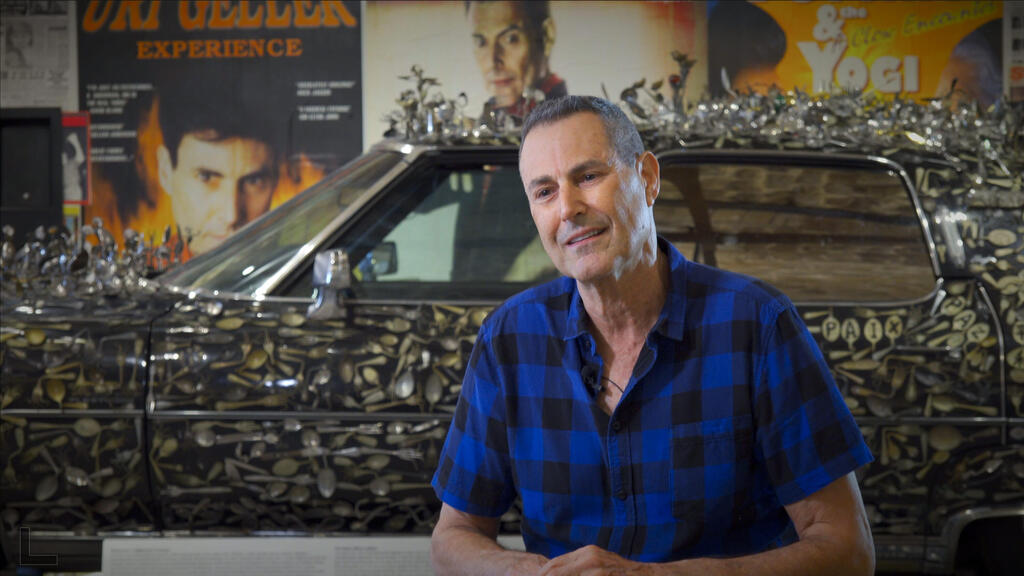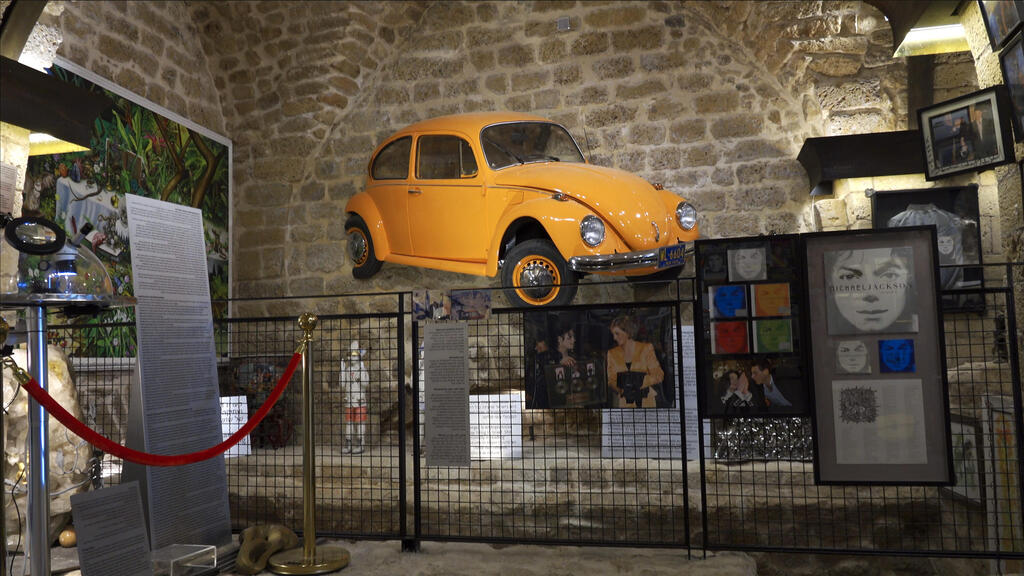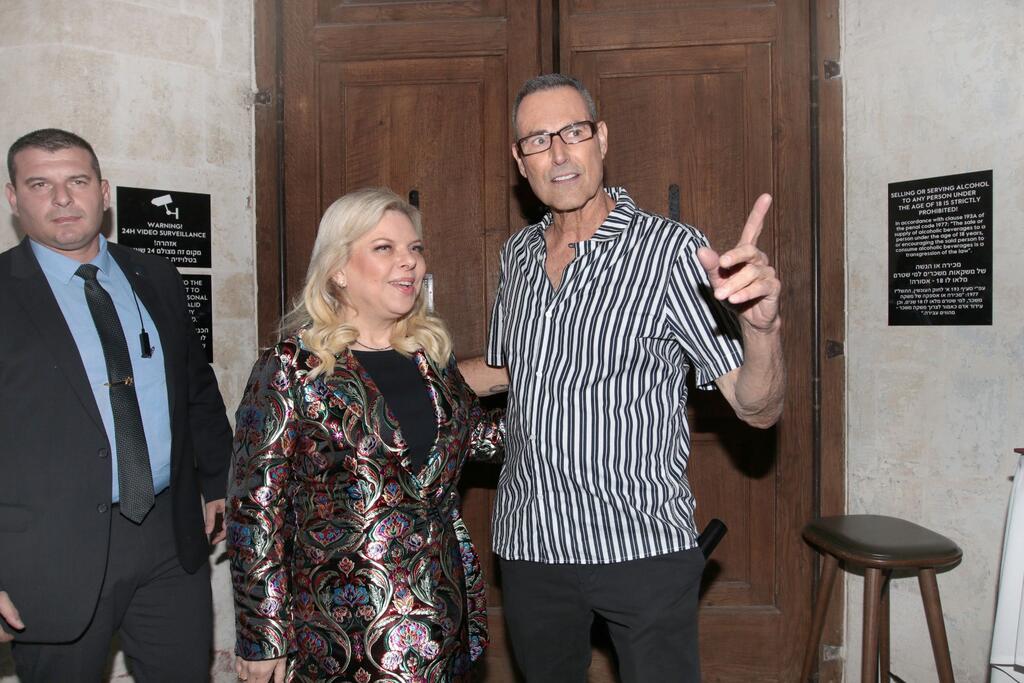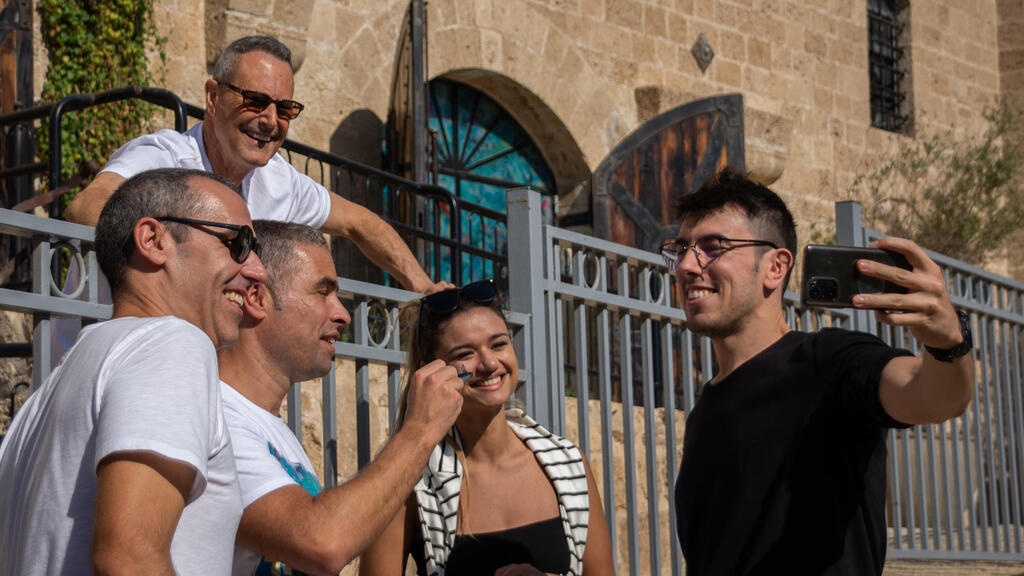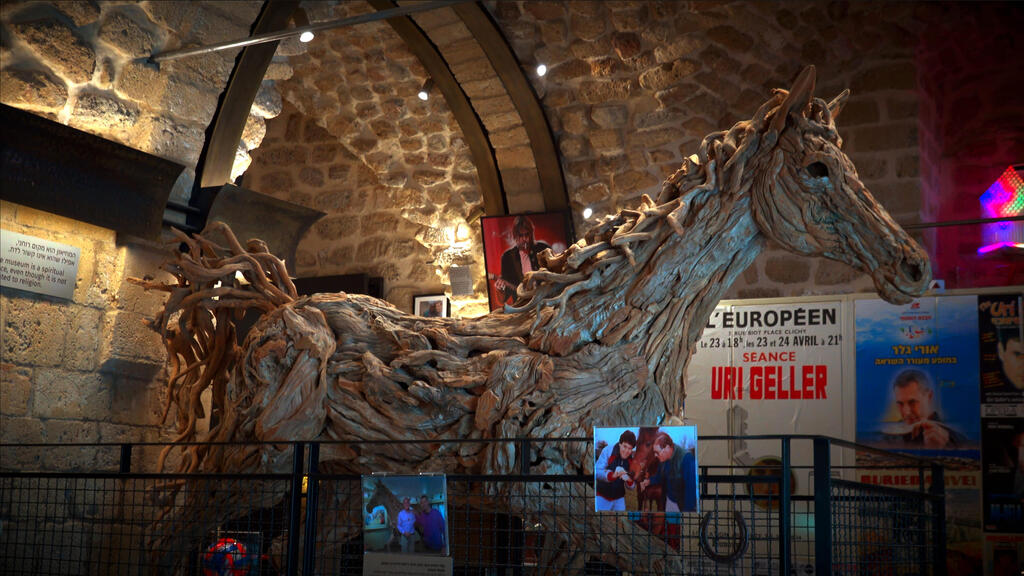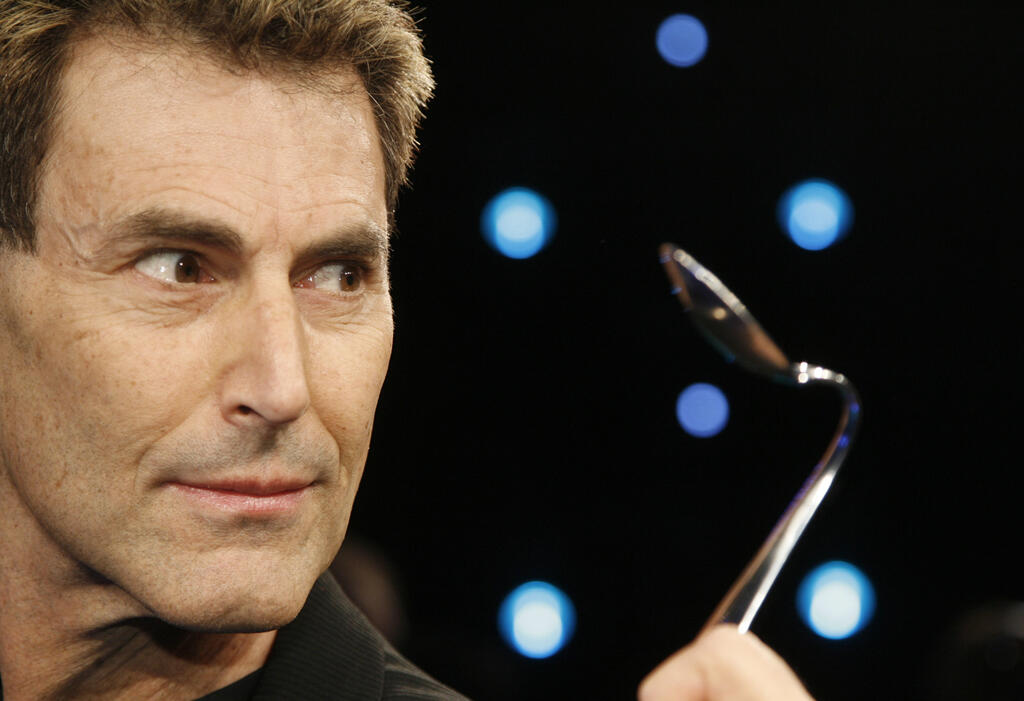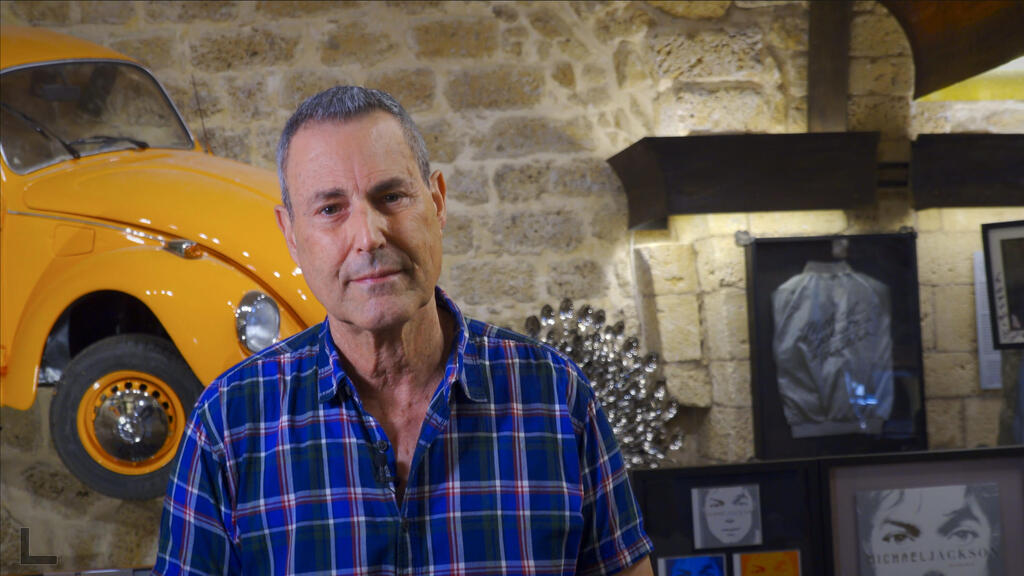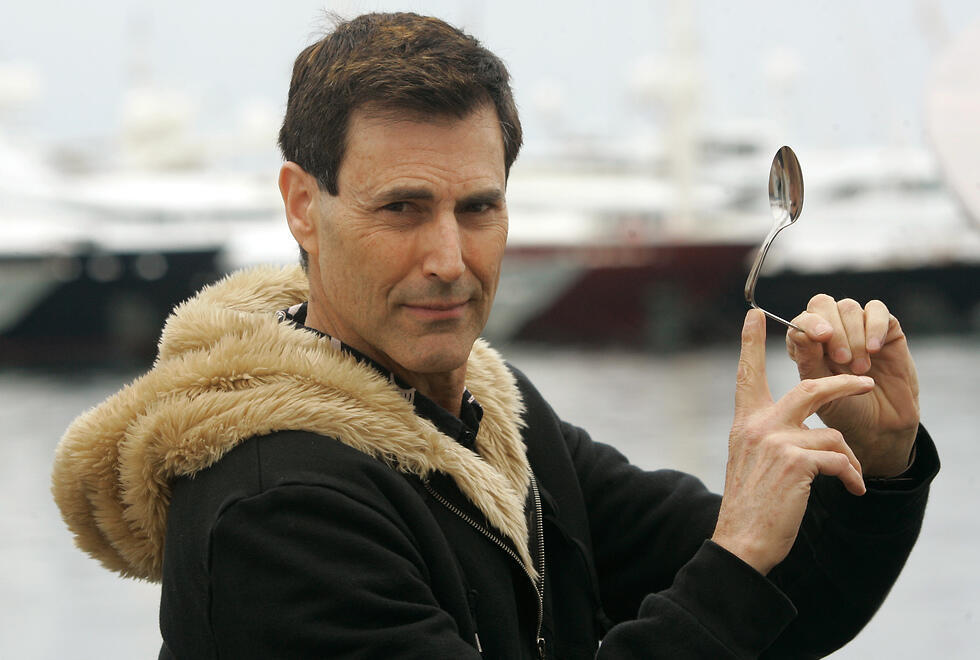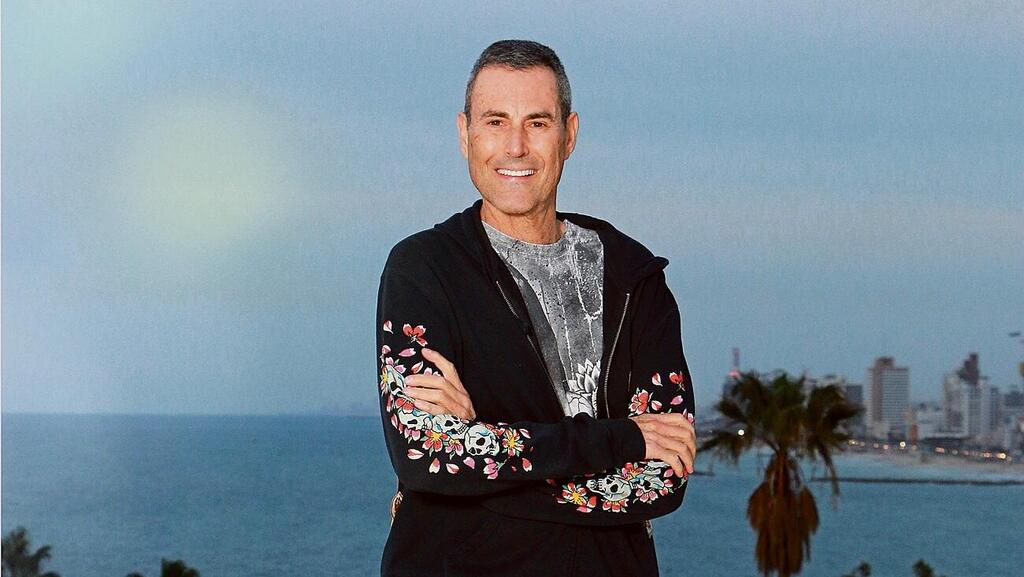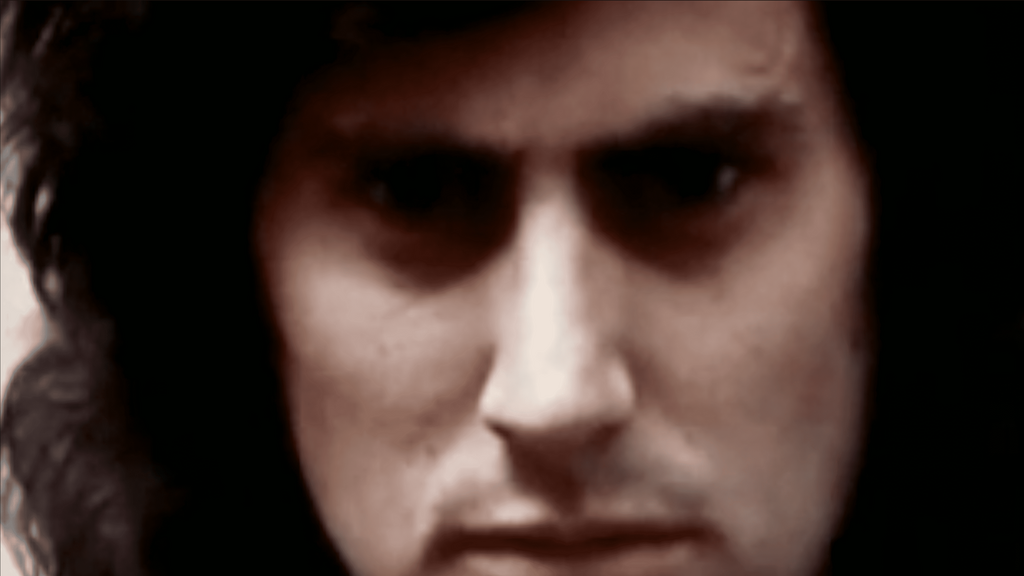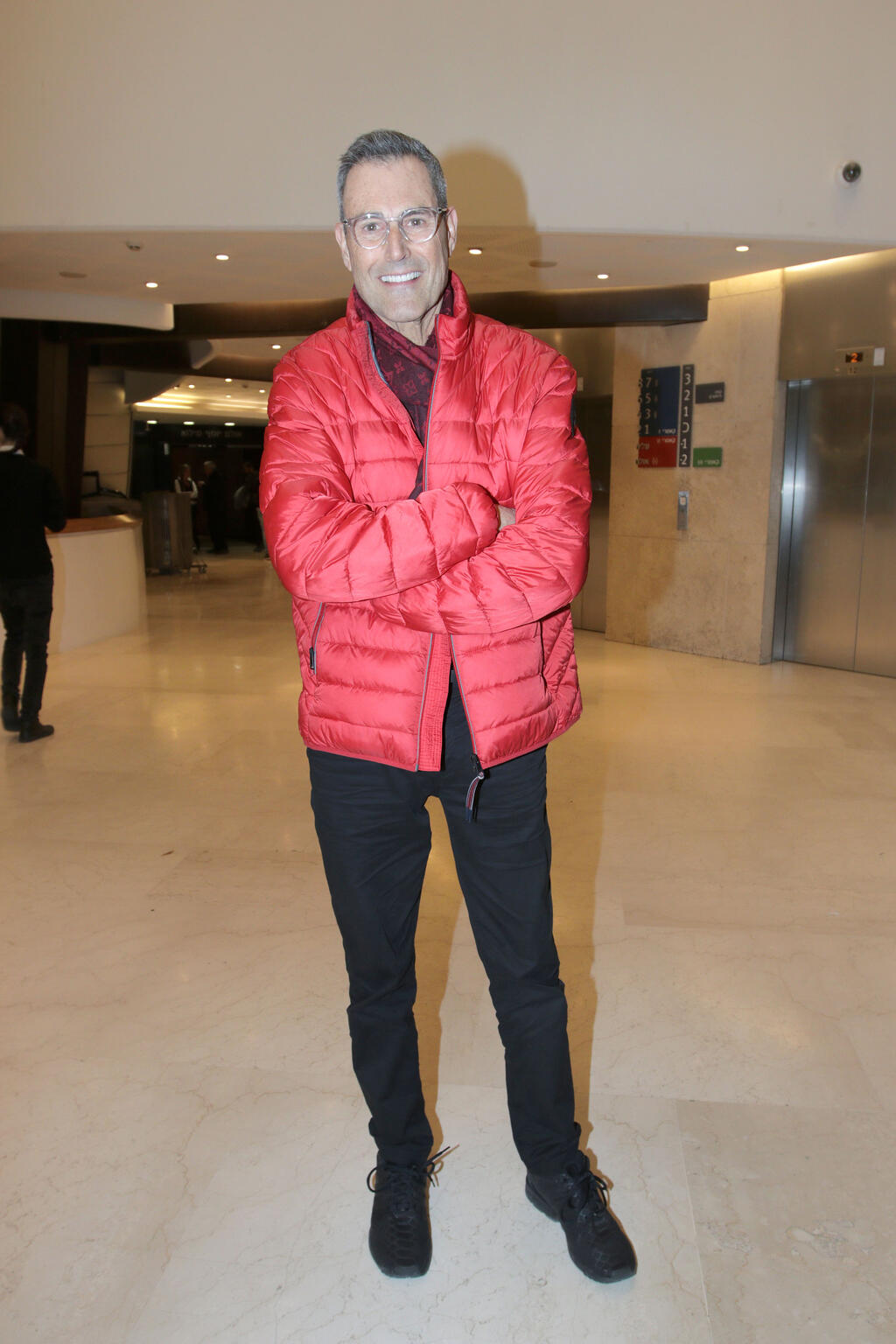Let's do a little experiment: Go to Google and search for the name "Uri Geller" in Hebrew, under the News category. You won't believe how many things Geller has been involved in over the past two years.
Read more:
Here's a nice sample: Geller comments on a glitch in WhatsApp and claims that aliens have taken control of the app; Geller sends a message to Putin that he is ready to help ease tensions between Russia and the West, and that he is planning to fly there to meet with the Russian leader; Geller filmed UFOs in the skies of Tel Aviv during rehearsals for an Air Force flyover; Geller announced the establishment of a new country on an island he purchased near Scotland, and he composed an anthem for it.
Add to that statements like announcing an initiative to stop Brexit with the power of thought, or rescuing a ship stuck in the Suez Canal and you'll understand that Uri Geller has a special power: he knows how to generate public attention out of nothing.
He's the first to admit that, by the way. On various occasions, as well as in the recent film about him, Uri Geller's Secret Treasures, which follows the renovation of a building in Old Jaffa where Geller has set up the Uri Geller Museum, preparations for the opening of the museum and Geller buzzing around the various exhibits—products of his collecting madness and his passion for mingling with the names of the famous, living or dead, and telling their stories—his Zoom conversation is not much different: same temperament, same enthusiasm, same stories.
"Here is my Cadillac," he says. "Stan Lee was so impressed when I bent a spoon for him that he put me on the cover of Daredevil. I know I'm bragging, but I am the only person in the world who has ever been on the cover of Daredevil. And here... you won't believe who was the opening act for my show 50 years ago. Shlomo Artzi."
Setting up a museum for yourself is quite the boast.
"I'm not sure I set it up to show off; I was a serious collector... and it’s all Salvador Dali here, and there's a 55-million-year-old crystal."
That’s quite a name-dropping collection you have there.
"Absolutely. Without a doubt. I say to you unabashedly, it is name-dropping. From Michael Jackson and the record I designed for him, through Princess Diana and my first car, to the astronauts who were on the Moon and Mick Jagger."
You said in the film that you are a master of self-promotion, and you truly are a master. Throughout your archive, and also in our conversation, it is essentially a form of self-promotion. Why do you still need to promote yourself? You are already very famous, and I assume also wealthy. Why do you still need to work on this?
"First of all, I don't see this as self-promotion. I go with the times. I am the king of publicity, without a doubt, but I don't have PR agents or promoters or image designers, nothing. It's just me and my brother-in-law, Shipi. I go with whatever idea comes to me, and I know it could be a fit for The New York Times or one of the tabloids in England like The Star or The Sun, so I create the story, and it catches the newspapers' attention. I don't have someone looking for interview opportunities for me. Today, you are interviewing me because HOT [a TV network] is airing the film about the museum, and they have a PR arm that is promoting it.
By the way, I have never in my life called a journalist. Never. They all call me because I am still a focal point for controversy. The skeptics have created an enigma around me, the strangeness of Uri Geller, the mysteriousness. The skeptics have no understanding of public relations. I always repeat what Oscar Wilde said a hundred years ago. There is only one thing worse in life than being talked about, and that is not being talked about. I knew how to capitalize on the controversies and turn them to my advantage. And to this day, thank God, I have never had to seek out publicity. It has found me."
The publicity indeed found Uri Geller. There's no need to detail his history, but here is a brief overview. He burst into the Israeli scene in the late 1960s, primarily as a stopper of functioning clocks or a fixer of broken ones through the power of his mind, and of course, his eternal trademark, bending spoons.
He relocated to the United States in the early 1970s and, thanks to immense ambition, Israeli chutzpah and an understanding of the human thirst for mystery, he managed to achieve fame there as well. Riding the waves of skepticism from people who claimed he was a fraud or, worse, just a magician, he advanced his career.
Later, Geller moved to England and started a family. Along the way, he became wealthy from deals with oil exploration companies that used his abilities to locate black gold.
In 2006, he returned to the headlines in Israel with the reality TV series The Successor, and seven years ago, the Geller family moved back to Israel and settled in Jaffa. Geller established the Uri Geller Museum, which currently only accepts groups that he himself leads through the museum's exhibits and his own history, but in the future, it will open its doors to the general public as well. Outside the museum lies the world's largest spoon, weighing 11 tons. People occasionally take photos with it, and Geller, cheerful and energetic, calls out to them from the balcony and tells them about himself.
"I draw energy from people who come here, from adults or children. A lot of children from summer camps come here, and they are fascinated because I know how to talk. I know how to present a story to anyone. Who doesn't remember Mick Jagger or Elton John? The moment I start telling these stories, a wave of nostalgia kicks in, and people can relate to my stories."
So it's not about the objects themselves, but the stories behind them?
"Exactly. When I tell people that this was David Bowie's phone, of course it excites me, and I do it with energy and positivity, and this passes on to the audience. I don't know how much longer I will keep doing this, maybe another three or four years. Don't forget that I am already 76, approaching the end of my life, as they say."
What do you want visitors to think about you when they leave the tour?
"I want them to see the enthusiasm, the nostalgia. I think what makes the museum is its eclectic nature, from Mick Jagger's guitar to the stones of Ramesses II that were the doorposts of his fortress. There are 554 keys, which were all the keys to the hotels I stayed in, but I didn't steal them. Even Donald Trump's hat that he signed for me, and believe it or not, I found four of his hairs inside the hat; I have Donald Trump's DNA."
But the thing that connects all these items is you; there's nothing else there.
"Yes. Everything here is related to me. Even a Pokémon card. And a horse made from driftwood."
How much time do you spend in the museum every day?
"I have between one and four tours a day. The reason I bought the building is that I live a minute and a half walk from here. And people come from different companies, retirees, day camps, the IDF chief of staff with Sayeret Matkal, and I learned something amazing from Aviv Kochavi.
When I used to talk about David Bowie, I would say that he was born with one blue eye and the other grey. One day, the chief of staff arrives and gently says to me, 'You are wrong, Bowie wasn't born with one blue eye; when he was a boy, a friend punched him in the eye.' I also learn things when people come here."
Why the decision to only go with groups?
"Because I conduct the tour alone. It’s impossible for me to do a tour for just one or two people; that can't happen. I am now in contact with a young man and we are hoping to make the museum accessible to everyone."
Is there an entrance fee?
"Definitely. And part of the revenue goes to charity. For example, this," Geller points to a picture of an island he purchased, named Lamb, which currently has 150,000 seagulls and 50,000 sea parrots as its inhabitants, "this is my island, I established a nation on it. And I explain to everyone how they can become citizens of the nation I established. It costs a dollar, and every penny goes to sick children at Wolfson Hospital. There is an association called Save a Child’s Heart, and we have already saved over 7,500 children with open-heart surgery. Half of them are Palestinians, by the way. Here, these are spoons that people buy."
What, what is that?
"A spoon that I sign."
Do you bend it?
"Well, it’s a bit hard for me to bend a thousand spoons."
When you go outside to meet people who stop by the museum, do you have spoons with you?
"You could say that… I'll show you. People shout at me, 'Uri, bend a spoon for me,' so what did I do? (He shows a tattoo of a spoon on his arm that bends as he folds his hand)."
So, you don’t carry spoons with you?
"No. I don't need to. There are spoons almost everywhere, in restaurants, everywhere."
There was a period when you claimed to have supernatural powers, and at some point, you moved away from that.
"That's not accurate. I had a show called The Successor, and it was successful and went all around the world. During that journey, I became friends with many magicians and mentalists. And I maintain their image. I don’t want them to receive any negative feedback from their colleagues, like, 'Oh, you’re friends with Uri Geller who claims to have supernatural powers.' When I finished that series, I said to myself, what’s the deal? Instead of calling it supernatural, I call it a mystifier (a person who obscures or muddles information, making something appear to be a mystery), it’s neither here nor there. It's on the fence."
Have you ever communicated [with spirits]?
"No. I don’t make contact and I am not a medium. But I definitely believe in it. Albert Einstein proved that energy cannot be destroyed; our body and soul are energy. So, what happens to this energy when we die? It must go somewhere. Do you know how many skeptics it takes to change a lightbulb? None, because they live in the dark. If we lived like that, we wouldn't have made it to the Moon or solved scientific issues that were considered fictional just a few decades ago. We must keep an open mind."
Does your close family also believe in this?
"My children, Daniel and Natalie, you can imagine they have tried a million times to bend a spoon. They haven't succeeded. My mother, who was related to Sigmund Freud, believed. She always thought that maybe I inherited powers from him; he had many interactions with Albert Einstein from the world of communication. My family goes along with me; I am the father of my children and have raised them well.
I strongly believe in a term coined by Jung, which is 'synchronicity' – everything that happens in the universe happens for a specific reason. We are like a bottle floating on the river; we can do what we want inside the bottle, but we can't stop the flow of the river on which it floats. Do you understand?"
But how do you deal with unpleasant things in life? Dilemmas or emotional stress?
"I have to deal with it like any other person. I'm not a guru or a prophet. I'm just like you, only I am Uri Geller, and I have this strange, trivial ability to bend spoons with the power of thought. To this day, I wonder how I managed to introduce a bent spoon into global culture. Einstein said, 'The most beautiful thing we can experience is the mysterious. It is the source of all true art and science.' Let’s leave the skeptics behind; we are on an amazing journey because we are open-minded and believers."
'I'm a showoff, this is me - Uri Geller'
There is no such thing as bad publicity, and Geller has mastered the ability to build his career on both skeptics and failures. All of this creates a publicity potential for him that he has learned to harness.
In an article about him in the New York Times this July, the writer, David Segal, mentioned one of the times when Geller was a guest on Barbara Walters' show and bent her house key for her. A week later, she hosted the magician, James Randi, one of Geller's major opponents. Walters presented Randi with an identical key and challenged him to perform the same act. Randi bent the key within a minute, and "Walters looked at him with disappointment as if the world had become more boring for a moment," Segal describes, "she looked at Randi’s key as if saying, 'Thanks for nothing, you buzzkill.'"
I read about this case and thought that when you bend a spoon, it doesn't create the same effect as when someone else does it.
"And I'll tell you why. Millions of magicians bend spoons, and there are magicians who bend a spoon much more impressively and much better than I do, but the aura created around me can't be shattered. The people who sat here were in awe when I bent a spoon, and I think none of them suspected that maybe it was a spoon with a magnet or chemicals; they all went along with me. They wanted to believe in it."
But you also fuel this, saying you would stop Brexit or dislodge the ship from the Suez Canal with a slight bend.
"Absolutely! I am a king, I can't call myself the best psychic in the world, but I am one of the best. I know what captures people’s attention. Four days ago, I hung a picture on the wall, of me with spoons over my eyes, with the caption 'If you could choose a supernatural power for yourself, what would it be?'"
But even our conversation is a constant flow of detailing all your achievements.
"True, because I am a showoff. This is me. This is Uri Geller; this is how I was born. I definitely won't change my personality. This is who I am."
It surely gives you something, otherwise, you wouldn’t be doing it.
"It might stem from what I have experienced in life. I come from a very poor family in Tel Aviv. My father didn't want children, and he forced my mother to have eight abortions. I am her only child, the ninth. She fought for my pregnancy, saying she wouldn’t agree to do it anymore."
When he was ten, during his parents' divorce, Geller was sent to live with a foster family on Kibbutz Hatzerim until the storm passed. In the mid-50s, at age 11, he moved with his mother to Cyprus, where she married a Hungarian-Jewish pianist who managed a hotel in Nicosia, but he passed away a year later.
During that time, the longstanding Turkish-Cypriot conflict escalated into a full-blown war. "I saw death in the streets," he recalls, "people killed, shattered skulls, blood. I always found refuge with my dog on the beach in Kyrenia."
War-weary from his time in Cyprus, Geller returned to Israel and immediately enlisted in the Six-Day War, "and I see more death, and it likely creates something in the soul. And I grew up, and we have no money, so I want fame and fortune, and I want them now. So, I am relentlessly pursuing them, and I am on a massive ego trip in the early 70s.
I went through a very tough period of bulimia and neurotic anorexia. A film producer in New York told me that I needed to lose weight to cast me in a movie about my life, and this started the vicious cycle of bulimia, neurotic anorexia and panic attacks."
"I would enter a restaurant and want to eat all the desserts, and then I would go to the bathroom and simply vomit. I was on my way to killing myself. And one day, I was at a checkup, the doctor took a photo of me to show me how thin I was and said to me, 'Uri, if you don't stop this, you will die.'
"That day, I returned to my apartment in New York with my Cadillac, and when I got out of the car, I was so weak that I had to drag myself out. And then, in the middle of 57th Street, I shouted, 'One, two, three, stop!' And I just ignited my willpower, and from that moment, I stopped everything. It never came back to me again. That was many years ago.
"John Lennon told me one day that I looked like a survivor from Auschwitz and that I needed to be more spiritual. And I said to him, 'I’ve heard the word, but what does it mean?' And he said, 'Go to Japan, you’ll find it there.' I listened to him, packed a suitcase, got on a plane with Hanna, the kids, my mother and my brother-in-law, and we flew to Japan.
"I rented a van there and we drove to Mount Fuji. I disappeared into a forest for a year, we lived in a wooden cabin and it was the best year of my life. I found spirituality and realized that one needs to live and to listen and to taste and to see, and it helped save me from the tsunami wave that was beginning to drown me."
"Who I am stems from everything I went through in my childhood. Seeing a shattered skull with a brain spilling out of it when you're 11 years old, it does something to you. So with all the turmoil of the journey, I became who I am today. I've never explained it to anyone like this, but perhaps this is why I savor victory and I love making a grand entrance; it's me and I can't help it. I am me. I experienced anxiety attacks and I got through it. I've been on many rollercoasters in life."
The question is whether this is something that hinders you in life or does you good.
"At my age, and I will be 77 in December, I no longer think about progress. Progress to where? If along the way someone stops me and says, 'Uri, maybe let’s collaborate together', if it attracts me and I find it challenging, I go for it. You said I'm rich; I am wealthy, but I am not Jeff Bezos."
No, but you spent six million dollars on the museum; you obviously didn't need them to survive.
"That's true."
You lived in a huge house in England, with a tennis court, a helicopter pad, a glass meditation pyramid and golden faucets. Why did you decide to leave it all behind?
"Suddenly, I shut down. I said, 'That's it, enough.' And we returned to Israel."
What do you think made you change your mind?
"I think that every Israeli who was born here has a passion or spirituality or some kind of pull toward the land. Israel magnetically draws the people born here back to it. I was yearning to be back with my people. I felt that I had to return to the country, and I told Hanna and she agreed. There is an energy here; I'm not talking about politics now, let's take that out of the equation. The people, the land, the place, the atmosphere."
The energies are very tough here nowadays. Quite a few people are looking in the opposite direction.
"I know, I hear, I see. The main reason I wanted to open a museum in Old Jaffa, and I could have opened it in London or New York, is that I wanted to bring people here in terms of tourism. I don't want you to think I am praising myself, but I am known almost all over the world. And people who have seen me in Germany, America, Japan, China - and it also depends on their ages - but they all say 'OMG, here is Uri Geller's spoon; it’s the biggest in the world'."


